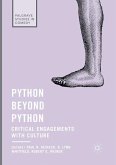Since the release of Christopher Nolan's Batman Begins in 2005, there has been a pronounced surge in alternative uses of the computer term 'reboot,' a surge that has witnessed the term deployed in new contexts and new signifying practices, involving politics, fashion, sex, nature, sport, business, and media. As a narrative concept, however, reboot terminology remains widely misused, misunderstood, and misinterpreted across popular, journalistic, and academic discourses, being recklessly and relentlessly solicited as a way to describe a broad range of narrative operations and contradictory groupings, including prequels, sequels, adaptations, revivals, re-launches, generic 'refreshes,' and enactments of retroactive continuity.
Adopting an inter-disciplinary approach that fuses cultural studies, media archaeology, and discursive approaches, this book challenges existing scholarship on the topic by providing new frameworks and taxonomies that illustratekey differences between reboots and other 'strategies of regeneration,' helping to spotlight the various ways in which the culture industries mine their intellectual properties in distinct and novel ways to present them anew. Reboot Culture: Comics, Film, Transmedia is the first academic study to critically explore and interrogate the reboot phenomenon as it emerged historically to describe superhero comics that sought to jettison existing narrative continuity in order to 'begin again' from scratch.of franchising in the twenty-first century.
of franchising in the twenty-first century.
Adopting an inter-disciplinary approach that fuses cultural studies, media archaeology, and discursive approaches, this book challenges existing scholarship on the topic by providing new frameworks and taxonomies that illustratekey differences between reboots and other 'strategies of regeneration,' helping to spotlight the various ways in which the culture industries mine their intellectual properties in distinct and novel ways to present them anew. Reboot Culture: Comics, Film, Transmedia is the first academic study to critically explore and interrogate the reboot phenomenon as it emerged historically to describe superhero comics that sought to jettison existing narrative continuity in order to 'begin again' from scratch.of franchising in the twenty-first century.
of franchising in the twenty-first century.








